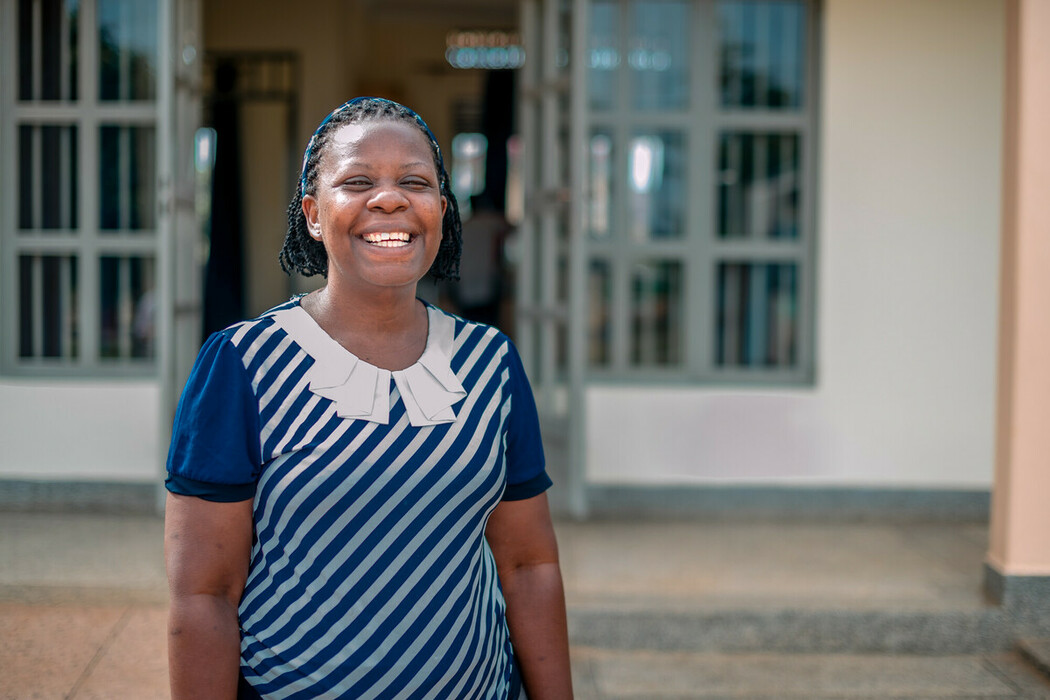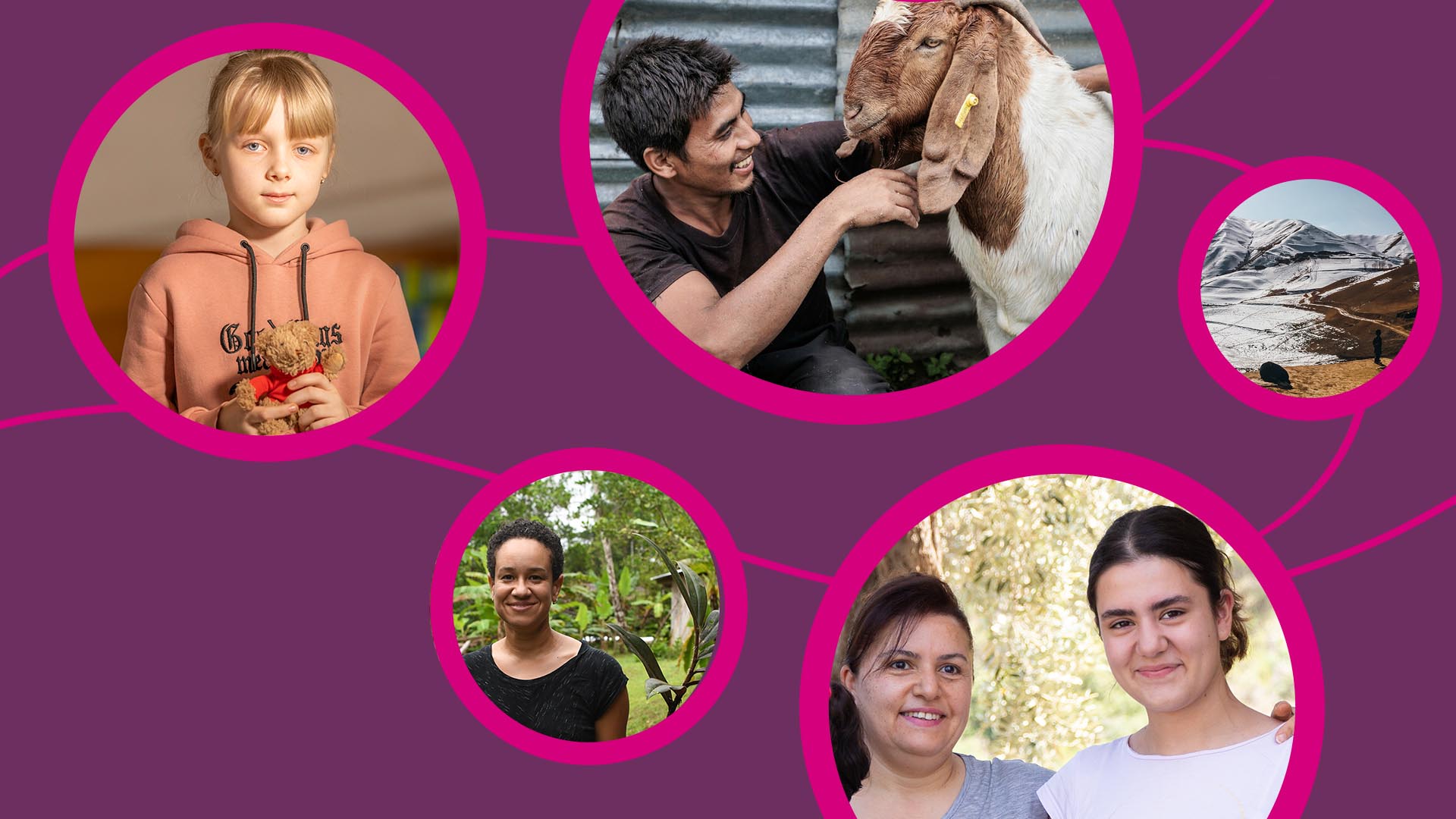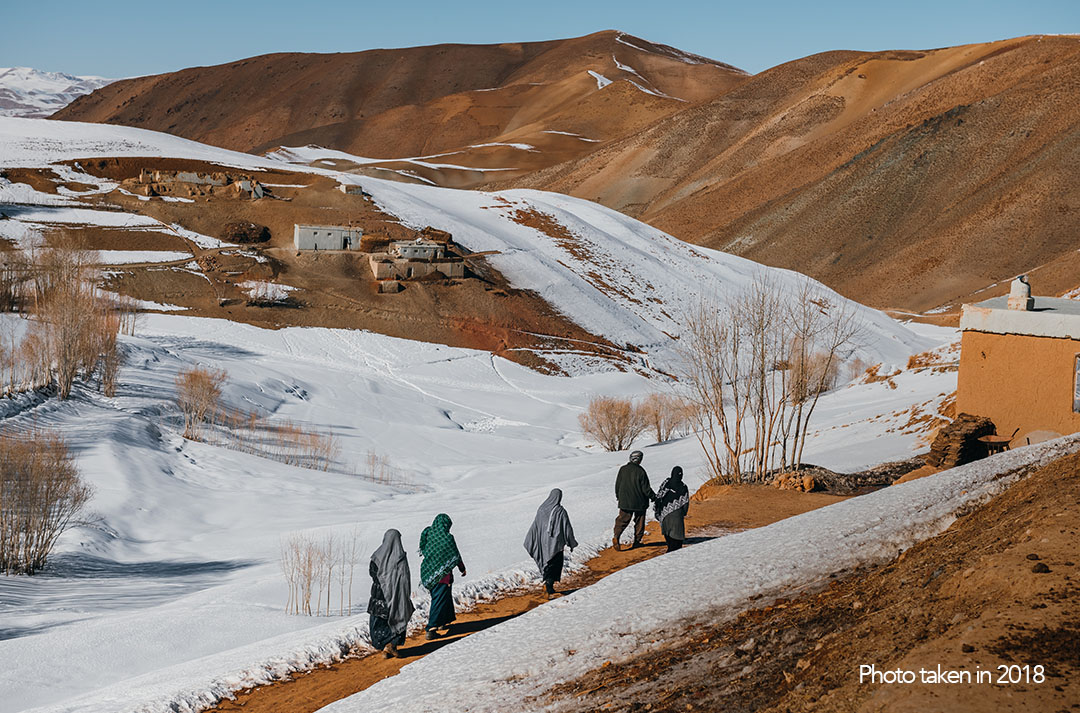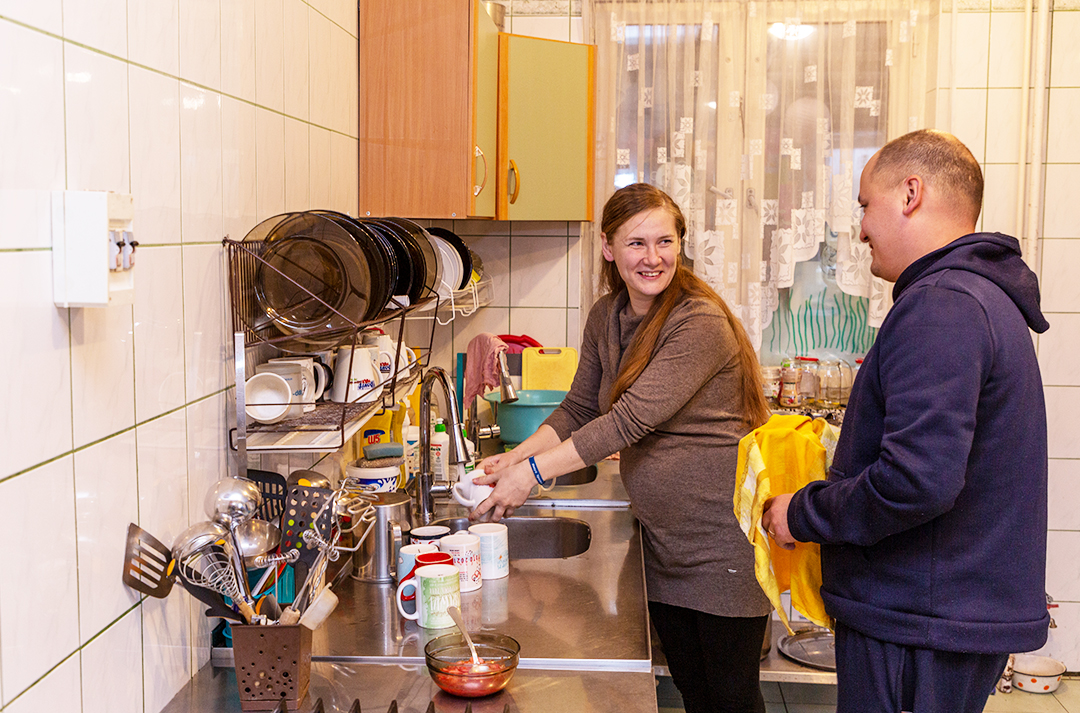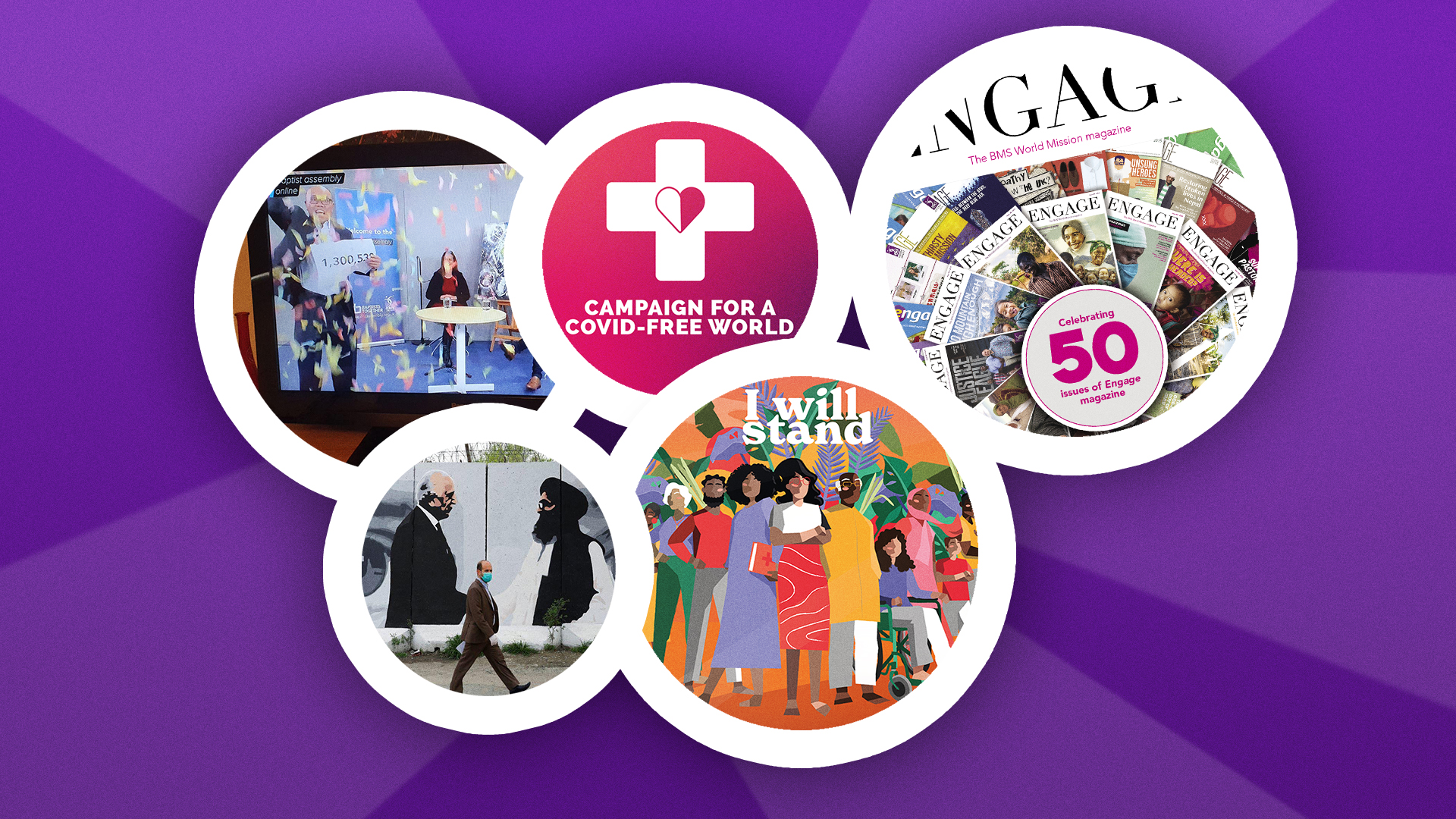Epidemic of fear:
winning Afghanistan's mental health battle with Coronavirus
Reducing fear. Stopping panic spirals. And spreading positive messages that are so effective they’ve been adopted by the Government. You’ve enabled heroic Afghan mental health professionals to serve on the frontlines of the Coronavirus pandemic — and save lives.
You left your family, your home and your country in search of a better, safer life and work in Iran. Now, out of nowhere, a deadly virus has gripped your new hometown, and you find yourself with hundreds of other young men, fleeing back to Afghanistan in fear for your life. You’re shoved in the back of a pick-up truck, pressed against the other young men who are fleeing with you. Breathing their breath. You think by leaving you can escape the virus, but you’re actually bringing it with you. There’s nowhere left to run.
Earlier this year, thousands of Afghan migrants fled back across the border from Iran, trying to escape an early epicentre of the Covid-19 Coronavirus. Many of them ended up in camps in the west of the country. The overcrowded conditions and lack of good sanitation were the perfect place for the very virus they ran from to spread. And misinformation working its way across social media meant that people diagnosed with Coronavirus believed they’d been given a death sentence.
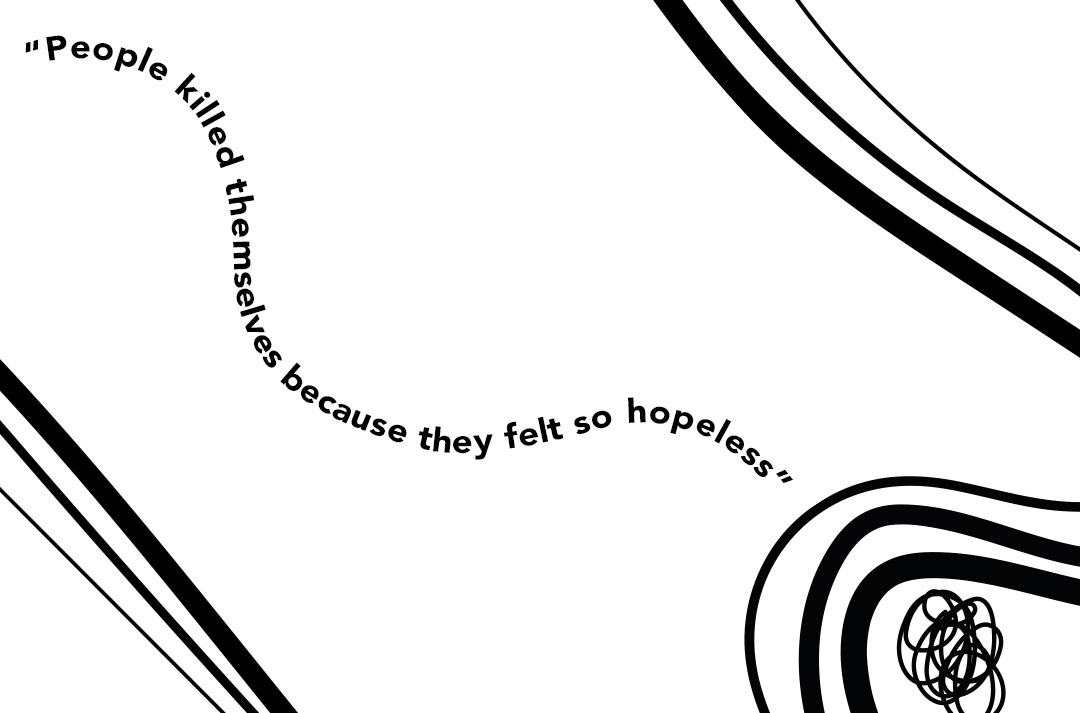
“People killed themselves because they felt so hopeless,” says BMS World Mission doctor Catherine*, who heads up our partner’s mental health work in Afghanistan. “People believed it was an instant death sentence. And in a lot of those cases, they were young people, who I’m pretty sure wouldn’t have died.”
Others fled the Covid-19 wards they were held in, terrified. They hadn’t seen a doctor. They hadn’t been fed. They weren’t able to contact their families. So they ran — but they couldn’t escape their panic or their diagnosis. They spread it further.
Even the expert medical workers trying to help weren’t immune to the virus, or to the fast-spreading despair. “We had an incident where one of the frontline medics himself tested positive,” says Catherine. “The police came in the middle of the night to take him away, and he then became suicidal in the unit.”
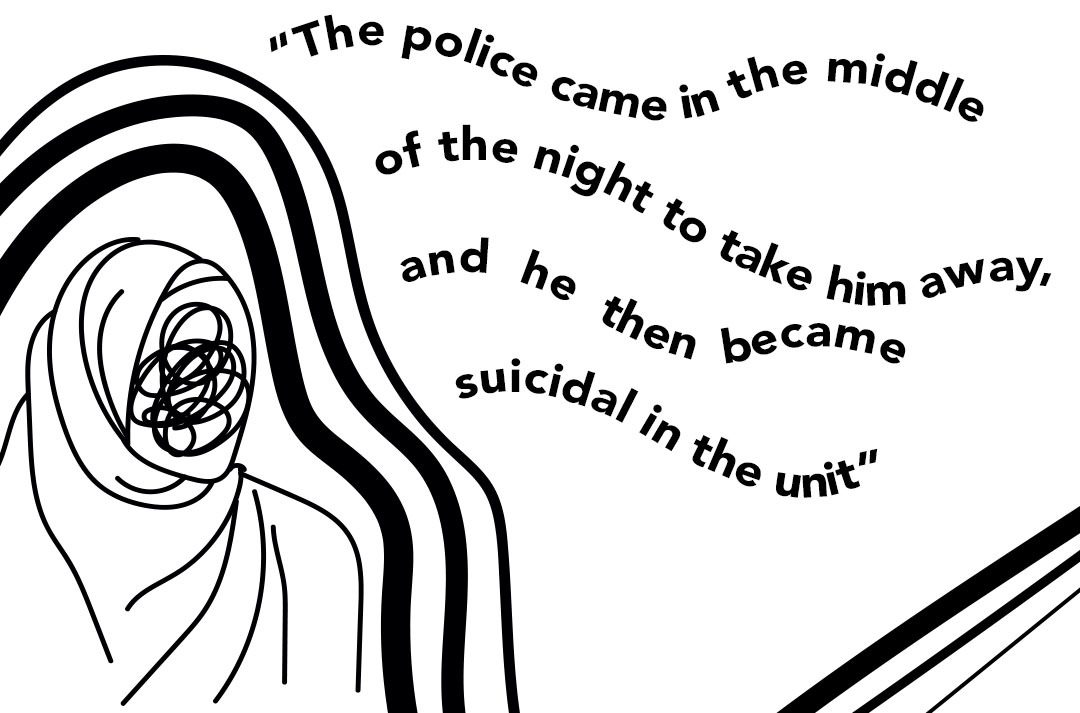
In the midst of all this stress and anxiety, you were there to help. You gave to BMS’ Coronavirus appeal, enabling us to respond to the urgent request for support we received from our partner in Afghanistan. The BMS-supported team of amazing Afghan mental health professionals was poised and ready to restructure their work in order to provide life-saving support during the pandemic. You gave them the funding they needed to step in and make a difference when it mattered most.
In the first few weeks of the crisis, you helped to provide full Personal Protective Equipment (PPE) to frontline medical workers in the west of Afghanistan, as well as for the mental health team. You also helped us train these medics in psychological health — how to look after their patients’ mental wellbeing as well as treating their physical sickness — preventing the panic spiral that caused some people to tragically end their lives. You enabled mental health professionals to go and counsel people struggling with depression and anxiety in Covid wards, too.
Thanks to your support, people on the cusp of suicide were given hope. People like the frontline medic considering ending his life. “Our counsellor was able to put on PPE and go and talk to him face-to-face for a few hours,” says Catherine. “They talked him down from it really.”
In the UK, medical workers have rightly been praised for their heroism, risking their lives to serve people suffering with this highly infectious virus. But in Afghanistan, some frontline workers have found themselves ostracised by their families and communities, who are terrified of contracting Coronavirus. You’ve helped counsellors and psychologists reach out to and support these medical workers through telephone counselling. The mental health team has also been providing telephone support to patients and their families, distributing credit so that people are able to phone their hotline for help.
After realising that doctors were struggling to break the news of a positive Coronavirus diagnosis to patients in a helpful way, the BMS-supported mental health team also took over the news-breaking service in hospitals in their city. They gave patients facts about the recovery rate from Coronavirus to help stop them spiralling into panic, and reminded people of the mental tools they already have to cope with trauma. Because men and women in Afghanistan are much-better equipped to cope with stress than many of us in the West — having lived with insecurity and conflict for most of their lives. In the face of this new, invisible enemy, people needed to be reminded of the strength and mental skills they already possess to get through times of crisis.
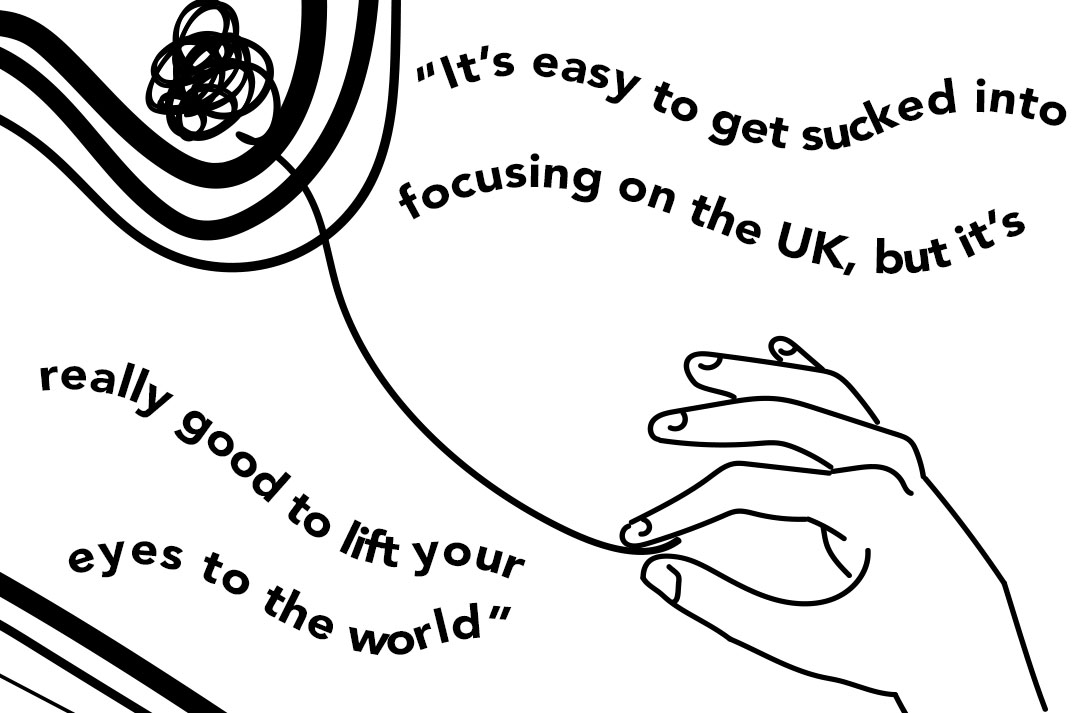
That’s why, in addition to individual support, the mental health team created billboards and printed materials to spread positive messages about how to cope with the stress of Coronavirus, as well as encouraging good hygiene practices. The billboards told people that they should speak to trusted friends and family members about how they are feeling. That feeling sad and scared and angry is normal in times of crisis. That taking time to relax is good for reducing stress. That it’s important to try and keep a normal schedule. And that it’s good to encourage your children to speak about their worries and to be creative. These messages were adopted by the Afghan Government and are now being promoted across the country. They’re helping people realise it’s okay to feel how they feel. And they’re helping to reduce dangerous behaviours that result from panic — like people fleeing Covid wards.
All this has been possible, in part, thanks to you. “It’s easy to get sucked into focusing on the UK, but it’s really good to lift your eyes to the world,” says Catherine, who believes the speed at which BMS supporters responded to help those in need was instrumental in making a difference.
“The work we were able to do with your support has really helped our relationship with the Government of Afghanistan who are very, very positive about us. It gives us the power to do even more in the future.”
Thank you for standing with the people of Afghanistan during the Coronavirus pandemic — providing vital mental health support to save lives in one of the most fragile places in the world.
Words: Sarah Stone
Illustrations: Joshua Mutton

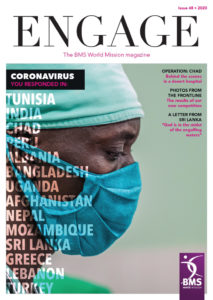
A version of this article first appeared in Engage, the BMS World Mission magazine. Read more about the impact your gift to the Coronavirus appeal is having by ordering your free copy of the Coronavirus issue of Engage today!
Inside, you’ll also find out how your church can save lives in Chad this harvest, and see the stunning winning entries from our first-ever mission worker photo competition!
Already signed up? Share Engage with your church and show them what a huge impact we can have in the world when we partner in God’s mission.


